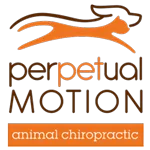Kids get hurt all the time. They're running, they're jumping, they're crashing into things. Kids want to have fun, and when they play, they play full-out.
So, when kids play real sports, stuff happens.1,2 Whether your kid plays soccer, baseball, football, or studies karate, a broken bone, sprained ankle, or twisted knee is just the natural fallout of learning new skills and having a good time.
The treatment for most childhood sports injuries is straightforward and standard.3 For strains and sprains that involve only mild to moderate swelling and pain, the time-honored RICE protocol is followed - rest, ice, compression, and elevation.
Pediatric orthopedists get involved when the injury is more severe or when an arm or leg bone is broken.
But there are other issues, and every parent needs to be aware of these possibilities. In one of the unusual chains of circumstances that make the practice of medicine and the practice of chiropractic so interesting, a physical trauma (like a sports injury) can reveal an underlying serious problem.
In other words, various disorders of bone may not show themselves in terms of symptoms until a physical trauma makes them apparent. Such problems include metabolic disorders, growth and development problems, and even benign and malignant tumors.
What would make a parent suspect such an issue? First, if the child's pain seems out-of-proportion to the degree of injury. A mild knee sprain - for example, caused by tripping over second base while trying to stretch a double into a triple - should not be causing significant pain.
Also, mild-to-moderate injuries should not be warm to the touch. A parent can evaluate this. And, a child should not be running a fever after an activity-related injury.
It would also be suspicious if the pain did not improve daily. For the majority of injuries, pain that lingers beyond several days suggests an underlying problem. Children are resilient. Healthy kids heal quickly. They want to shrug off an injury, forget it happened, and get back to playing.
If your child isn't getting better in a few days, seems lethargic, or feels ill following an injury, warning bells should go off.
Your family chiropractor is familiar with all such conditions and scenarios. He or she is always alert to unusual situations and will recommend the appropriate steps to take, including a complete physical and x-ray examination. If necessary, your chiropractor will be able to recommend appropriate specialists for follow-up, including hematologists, endocrinologists, and pediatric orthopedists.
These more serious problems are uncommon. And, of course, well-informed parents help their kids grow up healthy and strong.
1Caine D, et al: Incidence and distribution of pediatric sports-related injuries. Clin J Sport Med 16(6):500-513, 2006
2Emery CA: Risk factors for injury in child and adolescent sport: a systematic review of the literature. Clin J Sport Med 13(4):256-268, 2003
3Demorest RA, Landry GL: Prevention of pediatric sports injuries. Curr Sports Med Rep 2(6):337-343, 2003
Childhood Sports Injuries
- Created in Newsletter Library, Kid's Health
